We decided to journey into Laos down the Mekong River. Previously we had journeyed by train, bus and plane, and the idea of floating slowly into the heart of Laos held certain appeal.
From the quick processing at the border, we were herded onto a bus which ran us down to the long boats which lined up along the north side of the river. These boats held about one hundred car seats, all lined up in rows down either side of the vessel, and luckily we were able to secure a good spot at the front of the boat, away from the noisy engine at the rear.
As we set off, the boat slipped smoothly out into the river, the front swinging round in a large arc to face down-stream before the engines roared to life and the banks began to slip past more quickly than I would have imagined.
The river was fast and wide. Large islands of rocks jutted up from the turbulent waters and many whirlpools formed nearby, some were small and precise, others wide – sucking water low beneath the river level. Our captain expertly navigated around these as they formed, and we seldom felt more than a gentle rock of the boat as a result.
In Laos, traditional farming methods have the tribes slash and burn fields after the harvest before sowing elsewhere for the following year. The burned fields lie fallow for a decade and are then finally replanted. Unfortunately the burning season was upon us, and the air was thick with a low hanging smog. Even the banks of the river would, at times, seem indistinct through the haze, and the sun would cast a dirty, yellow cast on the landscape. At the end of the day when the sun would set, it appeared as a fiery red orb that hung ponderously on the horizon. This wasn’t quite the backdrop we imagined when setting off, but the uncanny scene was set and so we relaxed into the long journey as we delved further into the eerie countryside.
That evening the boat came to a landing at a single road village named Pak Beng. We found a small and comfortable guesthouse with unadorned rooms and low ceilings before taking a walk to find a restaurant. We ended up eating at an Indian restaurant where we met up with two siblings- Monica and Clint, whom we had been chatting to at the border earlier that day. The evening was grand, with good food that inspired nostalgia about India, and pleasant company to share the stories with. The evening came to a close with a primordial thunderstorm which lit up the sky and rattled the roof with its booming thunder. A nearby lightning strike plunged the village into darkness and the muggy heat of the night hung heavily as our fan wound down in the absence of electricity.
Waking with the strangled cry of dawn roosters, we rose and had tea before walking back down to the boat. We arrived hours before departure in order to get another good seat. It was just as well that we did, for there were less boats around this day, and a sudden influx of people meant many were forced to sit in the actual engine compartment at the back of the boat!
Our journey took us onward past several villages with rows of sharpened bamboo forming fortification around the perimeter. Presumably this either kept livestock in, or wild animals out, and again provided stark reminder that we were now in a county with roots firmly set in the past. On the banks of the Mekong we saw locals carrying bundles of sticks, or herding elephants slowly yet surely down river. The dress was tired and plain, lampshade hats sat atop weathered faces, and for the large part we were ignored by the villagers we passed. Occasionally a fisherman, standing waist-deep with a line, would look up and grant a nonchalant wave and then they too were gone and we found ourselves bordered by thick jungle which crawled and massed over the nearby hills, occasionally allowing for a small sandy beach or cove.
Some people had chosen to take a faster speed boat down the river. These craft completed the two-day journey in just six hours, tearing past us at breakneck speed. The tourists aboard had to wear motorcycle helmets due to the inherent danger, and the boats were nicknamed suicide machines. A furtive look around as one passed, confirmed that we were not the only people glad to be aboard the more languid slow boat.
As the sun set that day a landing appeared ahead of us and the boat swung around to rest. We climbed off the boat and stretched out. We had been dropped five kilometres from Luang Prabang and a local taxi racket ran shuttle to and from the town. Burdened with heavy bags we resigned to the ride and were soon on our way into the middle of the small city.
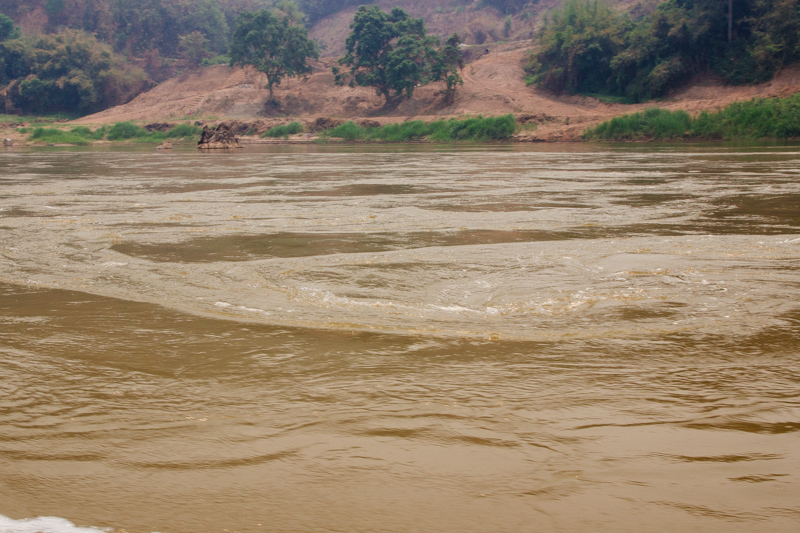
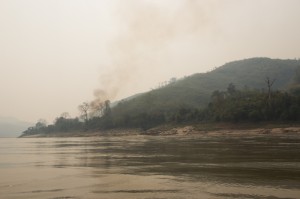
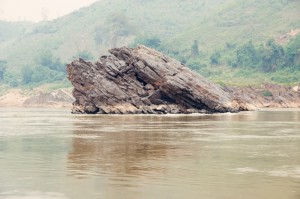
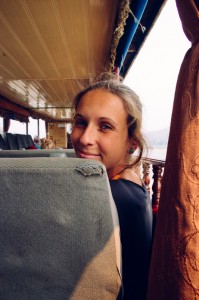
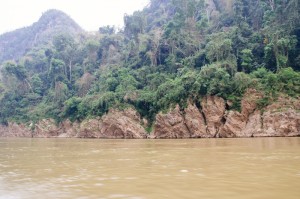
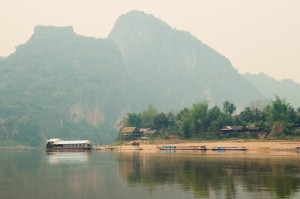
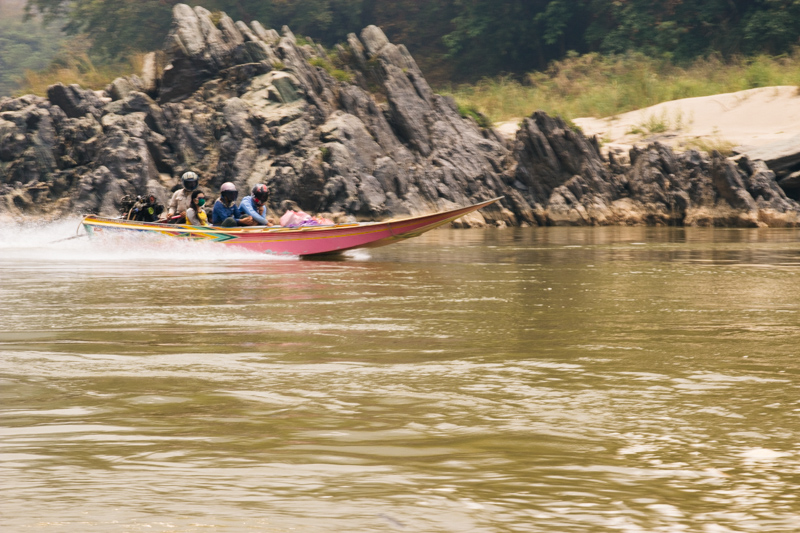
Cool!!